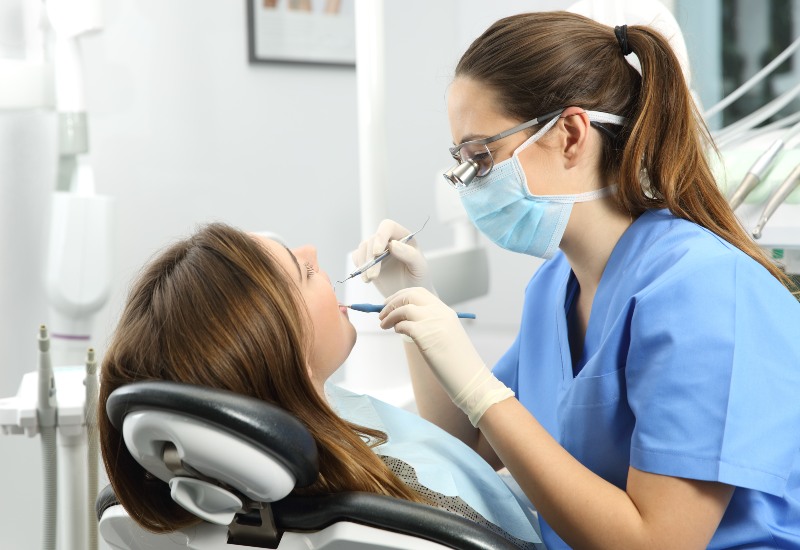Common Daily Habits That May Lead to Gum Disease
Maintaining healthy gums is essential not just for a beautiful smile, but for your overall health. Gum disease, or periodontal disease, is a common yet preventable condition affecting millions of Americans. While genetics and certain medical conditions can play a role, many cases of gum disease stem from everyday habits that we often overlook.
In this blog, we’ll explore what gum disease is, the daily habits that contribute to it, early warning signs, and practical tips to protect your gums, especially for our patients in Westlake, OH.

What Is Gum Disease?
Gum disease is an infection of the tissues that surround and support your teeth. It typically begins as gingivitis, a mild form characterized by red, swollen gums that may bleed easily. If left untreated, it can progress to periodontitis, a more severe form that can lead to tooth loss and affect your overall health.
Periodontal disease has been linked to serious conditions such as heart disease, diabetes, and even dementia. Fortunately, gum disease is often reversible in its early stages with proper care and professional treatment.
Common Daily Habits That May Lead to Gum Disease
You might be surprised to learn that some of your everyday routines could be harming your gums. Here are the most common habits that cause gum disease:
- Skipping Brushing or Flossing
Failing to brush twice a day and floss daily allows plaque, a sticky film of bacteria, to build up along the gumline. Over time, this leads to inflammation and infection.
- Brushing Too Hard
Aggressive brushing can wear down gum tissue and cause recession, making it easier for bacteria to invade.
- Using Tobacco Products
Smoking or chewing tobacco significantly increases your risk of gum disease. Tobacco restricts blood flow to the gums and impairs healing.
- Poor Diet
A diet high in sugar and low in essential nutrients weakens your immune system and promotes bacterial growth. Vitamin C, in particular, is vital for gum health.
- Mouth Breathing
Breathing through your mouth, especially while sleeping, can dry out your gums and reduce saliva production, which normally helps wash away bacteria.
- Grinding or Clenching Teeth
Bruxism (teeth grinding) puts excess pressure on the gums and can damage the supporting bone structure.
- Ignoring Dental Visits
Skipping regular dental checkups means plaque and tartar go unchecked, and early signs of gum disease may be missed.
Signs You May Be Developing Gum Disease
Recognizing the early signs of gum disease is key to preventing its progression. Watch for:
- Red, swollen, or tender gums
- Bleeding when brushing or flossing
- Persistent bad breath
- Receding gums
- Loose or shifting teeth
- Pain when chewing
If you notice any of these symptoms, it’s time to schedule an appointment with your dentist. Contact Dental Care of Westlake today to get ahead of gum disease.

Tips to Protect Your Gums from Daily Habits
The good news is that small changes in your daily routine can make a big difference. Here are some gum health tips:
- Brush Gently and Thoroughly
Use a soft-bristled toothbrush and fluoride toothpaste. Brush for two minutes, twice a day, using gentle circular motions.
- Floss Daily
Flossing removes plaque and food particles between teeth where your toothbrush can’t reach.
- Eat a Balanced Diet
Include foods rich in vitamin C, calcium, and antioxidants. Avoid sugary snacks and drinks.
- Stay Hydrated
Water helps rinse away bacteria and keeps your mouth moist.
- Quit Smoking
If you use tobacco, consider quitting. Your gums—and your entire body—will thank you.
- Use Mouthwash
Antibacterial mouthwash can help reduce plaque and prevent gingivitis.
- Visit Your Dentist Regularly
Professional cleanings and exams are essential for detecting and treating gum disease early. Schedule your appointment here.
Long-Term Consequences of Gum Disease
If gum disease is left untreated, it can lead to:
- Tooth loss due to the destruction of the bone and tissue supporting your teeth
- Receding gums, which expose tooth roots and increase sensitivity
- Systemic health issues, including increased risk of heart disease, diabetes complications, and cognitive decline
- Costly treatments, such as deep cleanings, gum surgery, or dental implants
Preventing periodontal disease is far easier—and more affordable—than treating it after it progresses.
Schedule Your Appointment Today!
Gum disease is a serious but preventable condition. By being mindful of your daily habits and making small adjustments, you can protect your gums and maintain a healthy smile for life. Whether it’s brushing more gently, quitting smoking, or scheduling regular dental visits, every step counts.
If you’re concerned about your gum health or want to learn more about preventing gum disease, the team at Dental Care of Westlake is here to help. Schedule your appointment today and take the first step toward healthier gums.
FAQs
Q: Can gum disease be reversed?
Yes, in its early stages (gingivitis), gum disease is reversible with proper oral hygiene and professional care.
Q: How often should I visit the dentist for gum health?
At least twice a year, or more frequently if you’re at higher risk for gum disease.
Q: Is gum disease painful?
Not always. Many people don’t feel pain until the disease has progressed, which is why early detection is crucial.
Q: Can children get gum disease?
Yes, although it’s less common. Teaching good oral hygiene habits early is key to prevention.
Q: What’s the best toothpaste for gum health?
Look for fluoride toothpaste approved by the ADA. Some brands also offer formulas specifically for gum protection.
